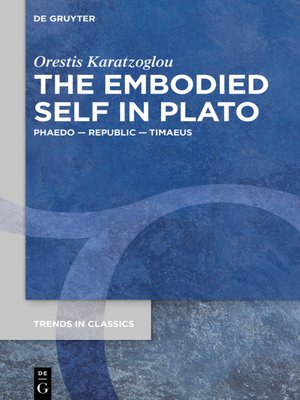The Embodied Self in Plato
ebook ∣ Phaedo – Republic – Timaeus · Trends in Classics--Supplementary Volumes
By Orestis Karatzoglou

Sign up to save your library
With an OverDrive account, you can save your favorite libraries for at-a-glance information about availability. Find out more about OverDrive accounts.
Find this title in Libby, the library reading app by OverDrive.



Search for a digital library with this title
Title found at these libraries:
| Loading... |
This book argues that, rather than being conceived merely as a hindrance, the body contributes constructively in the fashioning of a Platonic unified self. The Phaedo shows awareness that the indeterminacy inherent in the body infects the validity of any scientific argument but also provides the subject of inquiry with the ability to actualize, to the extent possible, the ideal self. The Republic locates bodily desires and needs in the tripartite soul. Achievement of maximal unity is dependent upon successful training of the rational part of the soul, but the earlier curriculum of Books 2 and 3, which aims at instilling a pre-reflectively virtuous disposition in the lower parts of the soul, is a prerequisite for the advanced studies of Republic 7. In the Timaeus, the world soul is fashioned out of Being, Sameness, and Difference: an examination of the Sophist and the Parmenides reveals that Difference is to be identified with the Timaeus' Receptacle, the third ontological principle which emerges as the quasi-material component that provides each individual soul with the alloplastic capacity for psychological growth and alteration.






